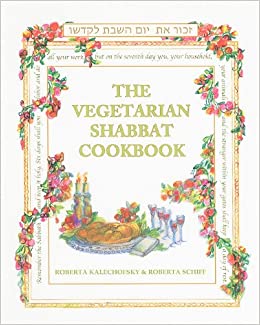Over the past sixteen years, I’ve written a lot about Shabbat from the perspectives of punk/music, vegan cooking, and teachings about animal protection. Here’s a roundup of the highlights.
Jewish Punk
In 2016, I discussed ways to “punk up” the Friday night service—including choosing Green Day, Ramones, and Mahones melodies for “Adon Olam” and innovating Anarchy “L’cha Dodi”—and one prayer where I went in the opposite direction, choosing to “Be holy, not speed-punk.”
The most musical treatment was my 2017 Jewcy playlist, “featuring punk rock versions of liturgical songs, originals about Shabbat, and a cover of the ‘King of Jewish Music.’ The songs might be loud and fast, but they’re still holy—for the most part.” It includes selections from Di Nigunim, Moshiach Oi!, the Groggers, Yidcore, White Shabbos, and the Schleps.
In 2018, I covered seven instances of Punk Rock Shabbat on the last edition of the Warped Tour. One Punk Rock Shabbat attendee explained, “It was awesome to be doing the service and all the prayers while some of my fav[orite] bands played in the background. … Being able to connect with punk rock Jews allowed me to further connect with really like-minded individuals in a place that meant so much to me, Warped Tour.”
That same year, when it became clear that Judge Brett Kavanaugh would get confirmed to the Supreme Court, the devastating news came on a Friday afternoon. I quoted “two thought-provoking Jewish musicians [who] referred to the forthcoming Shabbat as a coping mechanism.” Alicia Jo Rabins (of Girls in Trouble and formerly Golem) said she’d “think about all the people who have lit candles on Friday night in the midst of dark times, and worked for the light.” Louisa Solomon (of the Shondes) said, “Tonight, if you light shabbes candles, if you drink wine, if you are alone or surrounded by community, if you are weeping or planning a direct action … may you have exactly what you need to get through this weekend, renewed and ready to fight another day.”
Vegan Cooking
In 2008, I wrote about my first time cooking a Shabbat dinner. The polenta with bruschetta, salad, bean-and-barley cholent, and pumpkin pie came out fantastic. The challah was subpar.
For a Shabbat dinner in 2009, I made carrot-parsley salad, cucumber-chickpea salad, charoset, tempeh-potato salad, polenta with bruschetta, curried lentils with wild rice, and roasted cauliflower and carrots—and challah. With a pattern emerging, I noted that “all the dishes (with the possible exception of the challah) came out terrific.”
For a Shabbat dinner in 2010, I had an agenda to “rely chiefly on produce purchased at the Union Square farmers’ market” and “use some red, white, and blue foods, as Independence Day was just two days away.” I made a stir-fry with seitan and beet greens, red and golden beets over “chips” from blue potatoes, dal, charoset, carrot salad with scallion microgreens and parsley, wild rice, and berries.
In 2011, I reviewed The Vegetarian Shabbat Cookbook for the Forward. I reflected on the Korean-style barley salad, gingered cauliflower and carrot soup, mixed-bean cholent with tempeh, spicy oven-roasted potatoes, tofu finger steaks, and harvest pumpkin pudding. I concluded, “For vegetarian-oriented cooks who are always looking for more Shabbat options, The Vegetarian Shabbat Cookbook is a welcome addition to the kitchen bookshelf.”
Animal Protection Teachings
In one of my first blog posts for my Jewish-vegan blog, heebnvegan, in 2005, I addressed the most recent article by Judaism and Vegetarianism author Richard Schwartz. In “Environmental and Vegetarian Lessons From the Shabbat Morning Service,” Schwartz wrote, “The message seems clear: if we put G-d’s teachings into practice and imitate His ways of mercy, compassion, and justice, we will have blessings of prosperity, justice, and peace; however, if we turn to false modern gods of materialism, egoism, hedonism, and chauvinism, we will be cursed with many environmental and other societal problems.”
In 2008, I blogged about the final Shabbat sermon given by Rabbi Gavriel Holtzberg before he was killed in a terrorist attack in Mumbai, India. One story involved how the matriarch Rebecca gave water and food to camels. I included another perspective on this story from Vegetarian Judaism: A Guide for Everyone: “The story of how Rebecca is chosen to be Isaac’s wife is so charming that we easily forget its main point: that she was chosen because she showed compassion for an animal.”


No Comments